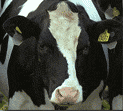CDFA Research Priorities
The CDFA Production Food Safety Program supports food safety research and education in California in partnership with producers and other agencies.
Research priorities include coordination and development of collaborative applied research and field studies related to physical, chemical, and biological hazards, including:
- Coordinate research to develop and evaluate better methods for testing individual animals, herds, and farm environments for the presence of traditional and emerging pathogens.
- Conduct epidemiologic studies to determine critical control points where pathogens can be prevented from entering the food chain.
- Evaluate the effectiveness of best management practices and HACCP (hazard analysis and critical control points) systems to reduce the risk of microbial contamination of livestock and poultry products.
- Develop new diagnostic techniques for use on farms or in farm environments.
- Develop new methods to prevent, control, reduce, or eliminate pathogens in food animals.
- Conduct risk assessment and benefit/cost studies to determine feasibility and effectiveness of prevention activities at the farm level.
Education priorities are focused on education for food-animal producers in methods to reduce or eliminate potential human pathogens from food-producing animals and farm environments, including:
- Disseminate information to producers about methods of pathogen reduction in animals and on farms.
- Provide risk assessment, communication, education and training to all stakeholders.
- Communicate information about handling and marketing of products to minimize recontamination.
Research projects funded or conducted by CDFA Production Food Safety Program since 1997
- Effect of manure drag swab distance on total bacterial plate count and total salmonella count in environmental monitoring on egg ranches
- Animal manure use and concerns in California agriculture
- California bulk tank milk and serology survey
- A survey of California egg ranches for Salmonella enteritidis
- Proposal for a Food Safety Continuing Professional Education Program
- Survey of manure management activities at livestock and poultry facilities and at facilities where manure is land-applied with emphasis on pathogen control points
- HACCP -compatible dairies: An educational module for statewide training and certification
- Use of poultry and cattle manure as fertilizer for produce: Assessment of Risk of Human Exposure to E coli O157:H7 and Salmonella typhimurium
- Molecular Fingerprinting of Salmonella, Enteropathogenic E coli, and Other Foodborne Pathogens
- Fight BAC - Grocery Store and Food Service Establishment Outreach
- Second Salmonella Survey of California Egg Ranges Including Estimation of the Effect of Humidity and Ventilation
- Development of Recommended Field Handling Practices for Non-composted Animal Manure with Iceberg and Leaf Lettuce
- Research Development of a Food Safety Minor Degree
- Effect of Previously Salmonella enteritidis-Contaminated Environment .... A Prospective Study
Useful Contacts
Follow Us
Contact Us
CDFA Animal Health and Food Safety Services,
Animal Health Branch
Sacramento, California 95814
Phone: 916-900-5002
Fax: 916-900-5333
Email: ahbfeedback@cdfa.ca.gov
Our offices are open 8:00 AM to 5:00 PM Pacific Time.

